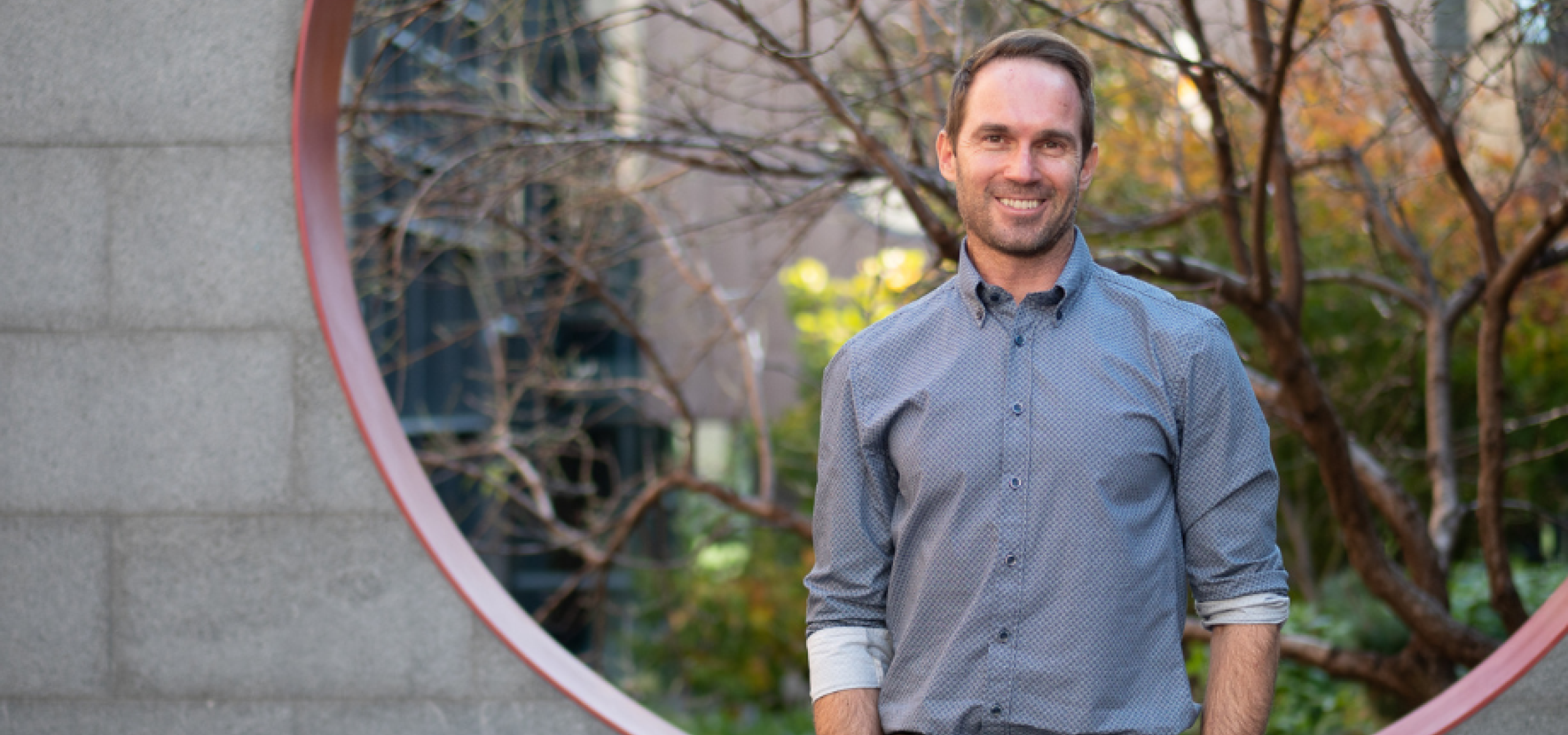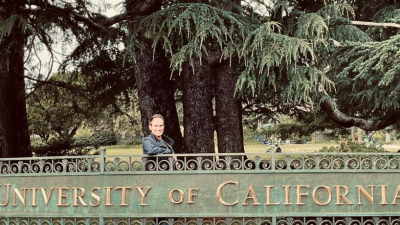
Professor Jolyon Ford raises profound questions in his new book about the future of human rights in an era marked by populist politics.
How did ‘universal rights for all’ become so easily dismissed as narrow legalistic claims by lefty elites favouring undeserving immigrant minorities?
As we approach the 75th anniversary of the 1948 Universal Declaration of Human Rights, the world is grappling with the question: have the ideals enshrined in this landmark document lost their lustre?
Forged in the crucible of the Second World War, the declaration provided both priority and legitimacy to legal-political claims framed as 'human rights'. This saw human rights appear to transcend the realm of politics, offering a guiding light for nations recovering from the horrors of war.
Whether they still hold that same power and influence today is another debate that Professor Jolyon Ford SFHEA provides rich scholarly contributions to through his new book, Human Rights and Populism (Routledge, 2023).
The rise of populist politics
Professor Ford raises profound questions in his book about the future of human rights as “a language with power” and “activity with societal impact” in an era marked by populist politics.
“The context is the rise of populist politicking in electoral democracies, which can dismiss human rights as illegitimate, even foreign, constraints on ‘the people’s will’,” he said.
The book fundamentally explores how populist politics have influenced the perception and framing of human rights issues.
“Some hallmarks of populism are anti-elitism, anti-pluralism, and the desire to remove legal-constitutional constraints on the ‘Great Leader’ who channels the real people’s will directly,” said Professor Ford, whose cross-disciplinary research interests are grounded in regulatory theory with a strong public policy orientation.
“The human rights movement (and constitutional politics generally) has sadly been really ineffective at countering the populists’ tendency to dismiss rights as elitist and out-of-touch (‘latte-drinking Amal Clooney representing the indefensible cleric preaching murder on British streets’), as unresponsive (‘preaching migrant rights without acknowledging legitimate fears about controls on immigration’) and as undue, external constraints on national sovereignty and destiny.”
Rather than portraying the human rights movement as a “passive victim” of populist forces, Professor Ford asks the question: how did the movement do this to itself?
“We need to ask whether the movement itself, aligned with prevailing models of liberalism, contributed to some of the conditions for authoritarian-idealising populism to gain traction,” he said.
“How did ‘universal rights for all’ become so easily dismissed as narrow legalistic claims by lefty elites favouring undeserving immigrant minorities?”
“Channelling scholars like Samuel Moyn (Professor of Law and History at Yale University), did we rely too heavily on courts and legal strategies rather than the hard everyday politics of persuasion and legitimation?”
Reconnecting with the ‘people’s will’
By asking these types of questions, Professor Ford hypothesises that the human rights movement may have lost touch with the concerns of ordinary people.
“The book asks whether, in focussing as the human rights project does on civil and political rights (post-9/11 especially), we might have lost contact with the valid socio-economic insecurities of large parts of the population,” he said.
“For them, a human rights frame might sound hollow in the aftermath of neo-liberalism and some of the fallout of the alliance between liberal democracy and market capitalism.”
Reflecting on his research process, Professor Ford explained how Human Rights and Populism is a “shorter-form book” that “engages with academic scholarship but is not necessarily trying to be a ‘weighty tome’ on the philosophical or jurisprudential nature of rights”.
“The research process was not rushed but I really did want the book out before 2024 (US presidential elections especially), so I chose a publisher who was responsive and ‘got’ that time-frame,” he said.
Inspiration for the book came to Professor Ford from a myriad of global events and movements that have left an indelible mark on our times.
"Trump, Brexit, authoritarian legalism in Poland, Hungary, and elsewhere, Modi's populist-nationalist India, Erdogan's Turkey, even Morrison's Australia," he said.
More specifically, Professor Ford was motivated by his experiences living in Oxford during the lead-up to the Brexit referendum.
“I was alarmed, to be honest, by how shocked my north Oxford intellectual friends were when most Brits voted to leave the EU,” he said.
“To me it seemed quite obvious why some of the pro-leave messaging (especially around migration, and the European Court of Human Rights) would have appreciable traction. It also seemed obvious that the ‘pro-EU’ camp used human rights arguments as if they were a debate-ending ace card, not trying to articulate good reasons plainly and in an accessible way.”
ARC-funded research
Human Rights and Populism draws from a wider research project led by Professor Ford, Professor Jeremy Farrall, and Associate Professor Imogen Saunders.
The project, Reconceiving Engagement with International Law in a Populist Era, is funded as part of the Australian Research Council (ARC) Discovery Projects scheme.
Professor Ford explained how this project takes a broader look at “populist backlash beyond human rights: against the World Trade Organisation (WTO) and free trade ideas, against the World Health Organisation (WHO) and so on”.
“The common question is how to increase the transparency, responsiveness, legitimacy of international or supra-national legal governance,” he said. “How do we make the international order more responsive to national-level concerns, while upholding the values and goals of the UN Charter?”
As for his book, Professor Ford hopes that it provides those in the human rights movement with an opportunity for reflection.
“In particular, humility in seeing that the value and universality of the human rights project is not always self-evident in our wider societies,” he said.
Human Rights and Populism is currently available for order as a paperback, hardback and eBook. The official launch of the book will be held at the ANU College of Law on Tuesday 7 November. Register now.


